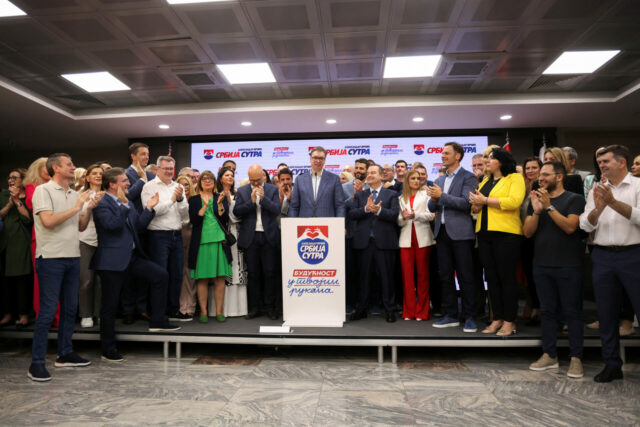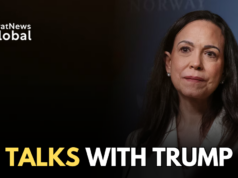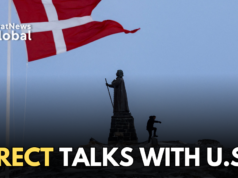Serbia’s ruling party defeated the opposition in a vote for Belgrade city council and partial local elections across the country on Sunday. The elections were marked by scuffles between opposition supporters and those of the populist President Aleksandar Vucic.
Unofficial vote count
The pollster CESID produced an unofficial vote count. It gave the alliance led by the Serbian Progressive Party (SNS) 52.9% of votes in the capital city. The SNS is loyal to Vucic.
The Kreni-Promeni (Move-Change) centre-right movement is led by lawyer Savo Manojlovic. It came second in the polls with 17.2%. The leftist green Biram Beograd (I Choose Beograd) was third with 12.5%.
Election rerun comes after protests against Serbia’s parliamentary elections
The rerun in Belgrade came after months of protests that followed the Dec. 17 parliamentary and partial local elections. The opposition has complained that there were problems in the elections.
Around 20% of Serbia’s 6.7 million people live in Belgrade. The mayor is the fourth most important person in the country. This comes after the president, prime minister and parliament speaker.
Partial local elections were also held in 88 of Serbia’s 145 municipalities.
Vucic delcares victory
Vucic declared his party would have a majority in the 110-seat Belgrade city hall.
“This is …an incredible victory.”
Manojlovic said his alliance would not recognise the results.
“These were most irregular elections ever.”
Serbia’s opposition and rights watchdogs accuse the SNS of stifling media freedoms, violence against opponents, corruption, and ties with organised crime.
Vucic and his allies deny these allegations.
Serbia is a candidate for membership in the European Union. However, before it joins the bloc, it must make rule of law and media freedom reforms, root out corruption and tackle organised crime.
It must also mend ties with Kosovo and align its foreign policies with those of the EU. This includes the introduction of sanctions against Russia.
With inputs from Reuters
Traveller, bibliophile and wordsmith with a yen for international relations. A journalist and budding author of short fiction, life is a daily struggle to uncover the latest breaking story while attempting to be Hemingway in the self-same time. Focussed especially on Europe and West Asia, discussing Brexit, the Iran crisis and all matters related is a passion that endures to this day. Believes firmly that life without the written word is a life best not lived. That’s me, Ashwin Ahmad.





